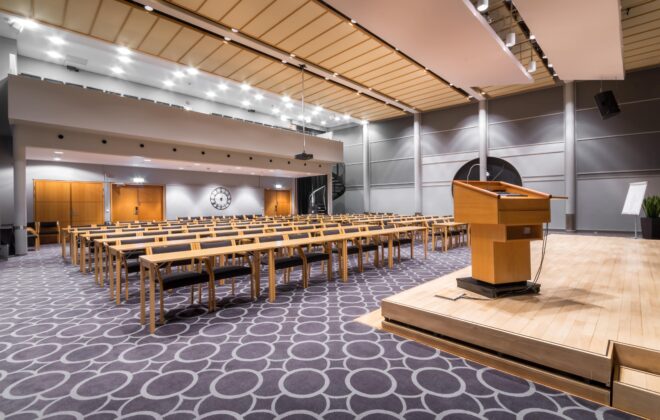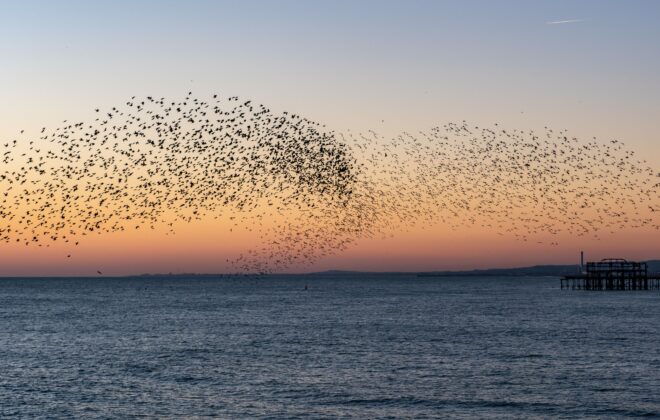AFINO autumn school 2024: “Research and policy around RRI: tensions and opportunities”
7-10 October 2024, at Hardangerakademiet in Jondal (Norway)
| Place: Hardangerakademiet, in Jondal by Hardangerfjorden (Norway) Date: Monday 7th October (lunch) to Thursday 10th October (lunch) Registration form: https://skjemaker.app.uib.no/view.php?id=17357436 Limited places: 20 participants – register asap! Who: early career researchers working with / interested in RRI (priority given to AFINO affiliates and ARINA / RCN ‘technology convergence’ projects), but everyone welcome! ECTS: estimated to 2 (+1 for essays) at the PhD level Detailed programme + information on essays: see below Preparatory readings: will be sent out in September Additional practical information: – Accommodation and food will be covered, but participants have to organise and fund their own trip to Jondal. – Pack walking shoes, as we aim to go on a half-day walkshop – Bring comfortable/warm clothes and indoor shoes. – Simple accomodation; shared, but spacious rooms. Towels and sheets available. – Vegetarian + vegan food Recommended travel route from and to Bergen: – On Monday 7th October at 8.30am, we meet at the Bergen Bus Station Monday, platform O, and take the bus 930 to Jondal; departing at 8.55am. Trip duration: ca. 2 hours – On Thursday, we take the bus together back to Bergen after lunch. Expected arrival in Bergen: 4.30pm. For scientific content and practical questions Anne Blanchard: anne.blanchard@uib.no More information about the previous AFINO research schools here. Outcomes of the previous AFINO research schools here. More information on ARINA here. |
For this last autumn school, we will discuss a topic that has been a read thread over the years in AFINO; namely: the tensions and opportunities inherent to research and policy around Responsible Research and Innovation (RRI). We will look at how RRI is variously defined by the different actors of the research and innovation systems (researchers, policy-makers, funders, innovators), and how these different framings of RRI might lead to gaps between expectations, intentions and outcomes, and challenges when trying to concretely apply RRI in different projects.
To deepen those discussions, we are this time very happy to welcome Cecilie Anita Mathiesen, special advisor at the Research Council of Norway, to take part in the autumn school, and to directly share her perspectives on what the RCN means and intends to, when calling for RRI in radical innovation projects.
The teaching team will also include members of two important RRI centres in Norway: AFINO and DLN (Digital Life Norway), who will share their experience in practically implementing RRI in various projects and settings, and the tensions and opportunities they experienced. The team will be composed of Anne Blanchard (AFINO and SVT), Siri Carson and Giovanni De Grandis (AFINO and NTNU), Roger Strand (DLN and SVT), Anamika Chatterjee (DLN and NTNU), and, as mentioned above a guest lecture by Cecilie Mathiesen (special advisor at the RCN).
Together with you, we hope to discuss:
- the tensions between what is expected and asked for in RRI project calls, and what is possible in the reality of short-term research and innovation projects (with a focus on early career researchers), and
- the (new) collaborations and partnerships needed between research and policy, in order to navigate these tensions.
As AFINO is coming to its end in 2024, our hope for this last autumn school is to create synergies between the well-established AFINO RRI community and the new ARINA RRI community, thus keeping reflections and discussions going on the challenges and opportunities inherent to research and policy around RRI, in particular as experienced by early career researchers. ARINA is a project funded by the Research Council of Norway (RCN) for 2024-2028, and titled Ansvarlig Radikal Innovasjon: Nettvert og læringsArena (Responsible Radical Innovation: Networking and learning Arena). The project will support reflections and learning around RRI for the various projects of the RCN portfolio “Technology convergence” and the RCN itself. Synergies between the experiences of the AFINO RRI community, and the ARINA radical innovation community, will certainly be enriching!

| Programme outline |
Monday 7th October
| Morning | Arriving at the venue, and lunch together |
| Afternoon 13-16 | Welcome and introduction (Anne Blanchard) “RRI seen from the Research Council of Norway: definitions, motivations and expectations” (Cecilie Mathiesen) “Tensions and opportunities inherent to research and policy around RRI: the example of AFINO” (Siri Carson) Group discussion: where are the main tensions and opportunities located? |
Tuesday 8th October
| Morning 9-12 | “Tensions and opportunities inherent to research and policy around RRI: the example of DLN and radical innovation projects” (Roger Strand; following up on the previous afternoon) |
| Afternoon 13-16 | Interactive panel on the (new) collaborations and partnerships needed between research and policy, in order to navigate these tensions. (All) Group work, working towards the final presentation |
Wednesday 9th October
| Morning 9-12 | “Tensions between expectations and reality in RRI projects: a focus on early career researchers in AFINO and DLN” (Anne Blanchard, Anamika Chatterjee and Giovanni De Grandis) |
| Afternoon 13-16 | Group work, working towards the final presentation Mini walkshop on the topics of the week |
Thursday 10th October
| Morning 9-12 | Time for the participants to finalise their presentations Presentations by participants Last plenary discussion together / closing the autumn school |
| Afternoon 13-16 | We travel back to Bergen after lunch |
| Assignment |
You will get 2 ECTS for:
- Reading the articles/reports that have been sent out
- Active participation in the autumn school
- Group work during the autumn school
- Presentation in group on the last day
The group work during the autumn school consists in gathering reflections in the form of a presentation (or a more creative form, if wished) on one or both of these topics:
- The tensions, experienced by early career researchers, between what is expected and asked for in RRI project calls, and what is possible in the reality of short-term research and innovation projects
- In particular, where do these tensions stem from? Gaps or tensions in definitions, langage, expectations, motivations, intentions, temporalities, feasibility, evaluation and merit criteria, etc.
- Where do these tensions occur / where are they located?
- How are they experienced in practice by early career researchers?
- The (new) collaborations and partnerships needed between research and policy, in order to navigate these tensions.
- Do interdisciplinary or transdisciplinary collaborations have a role to play? How?
- What should shared spaces for reflection be about? What shape could they take?
You will get an additional 1 ECTS for writing an essay (ca. 5 pages), on:
- What are the main tensions and opportunities that you experience in your project, when trying to apply RRI? Expand on some of those tensions.
- Can you think about ways of navigating them, that might involve new types of doing research or new collaborations and partnerships?
We look forward to seeing you in Jondal in October!
On behalf of the teaching team,
Anne Blanchard (anne.blanchard@uib.no)
Featured photo taken at the AFINO Autumn School 2023, with AFINO research school leader, Anne Blanchard in the middle. Photo: Eva H. Murvold.

Anne Blanchard
Anne Blanchard is a researcher at the Centre for the Study of the Sciences and the Humanities at the University of Bergen, where she is working on projects studying how science is employed for complex and uncertain climate and health challenges.
She is also the leader of The AFINO Research School. Read more about Anne at AFINO's webpage.




